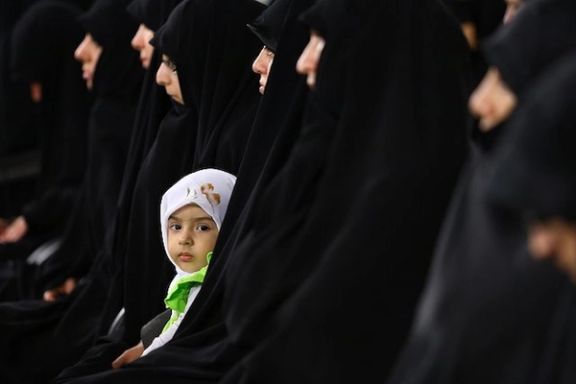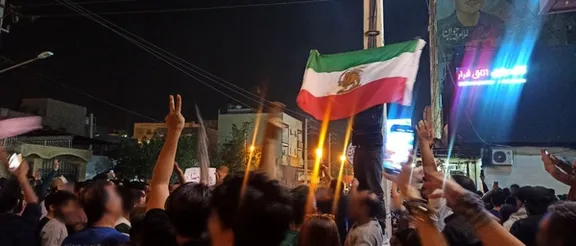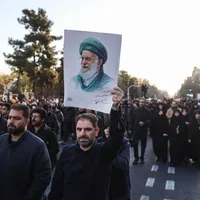The men — Mostafa Sepahvand, 39, Farhad Javadi Manesh, 44, and Shapoor Qalehali Khani Noori, 56 — were arrested at their homes in London on May 3 and charged on Friday.
All three are accused of engaging in conduct likely to assist a foreign intelligence service between August 14, 2024 and February 16, 2025, in breach of Section 3 of the National Security Act 2023.
The foreign state involved is Iran, police said.
Surveillance linked to Iran International journalists
According to the Crown Prosecution Service, the men carried out surveillance and reconnaissance targeting journalists associated with Iran International.
"Examination of their phones revealed that from the 14th August 2024 they had been engaged in carrying out surveillance with a view to locating journalists associated with Iran International," read the statement by the Crown Prosecution Service.
Iran International is a Persian-language TV news network that broadcasts 24/7 and has a strong following in Iran, despite government efforts to restrict access to the internet and satellite signals. Tehan has labelled it a terrorist organisation.
Phones seized during the arrests allegedly contained satellite images and mobile phone videos of buildings and streets in London.
Sepahvand faces an additional charge of conducting reconnaissance with the intention of committing acts of serious violence in the UK. Javadi Manesh and Noori are charged with similar conduct intended to facilitate serious violence by others.
“These are extremely serious charges under the National Security Act,” said Commander Dominic Murphy, head of the Metropolitan Police’s Counter Terrorism Command. “Detectives have been working around the clock and we have worked closely with colleagues in the CPS to reach this point.”
All three men have been remanded in custody and appeared at Westminster Magistrates’ Court on Saturday.
Iran International has previously been the subject of threats and attacks. In 2023, a man was convicted under terrorism laws after filming outside its premises, and in 2024, Pouria Zeraati, the television host of the "Last Word" program on Iran International was stabbed in London.
UK Minister: Iran must be held to account for its actions
Home Secretary Yvette Cooper on Saturday confirmed Iran was the foreign state referred to in the charges.
“I want to thank the police and security services for their continuing work on this very serious investigation, and for their immense dedication to protecting our national security and the safety of our communities,” she said in a statement.
“The charges that have been laid must now take their course through the criminal justice system… But we will also take separate action to address the very serious wider issues raised by this case. Iran must be held to account for its actions.”
Cooper said the government would publish next week the findings of a review by Jonathan Hall KC -- the Home Secretary's independent reviewer of terrorism legislation -- into whether existing counter-terrorism frameworks can be adapted to address modern state-based threats, including the design of a proscription mechanism for state-linked entities.
UK raises alarm over Iranian state threats
UK security agencies have warned of increasing threats linked to Tehran. In October, MI5 Director General Ken McCallum said at least 20 plots linked to Iranian state actors had been disrupted since early 2022, including efforts to kidnap or kill individuals seen as dissidents.
A fourth man, aged 31, arrested as part of the investigation was released without charge on May 15.
All three defendants arrived in the UK by irregular means, including via small boats, between 2016 and 2022. Sepahvand claimed asylum in 2016, Javadi Manesh in 2019 on religious grounds, and Noori's asylum application was rejected in 2024. He is currently appealing that decision.
Iran’s government has previously denied involvement in alleged plots on British soil. In earlier comments, Foreign Minister Abbas Araghchi said Iran “categorically rejects” claims of targeting foreign sites and called for due process to be afforded to Iranian nationals abroad.






